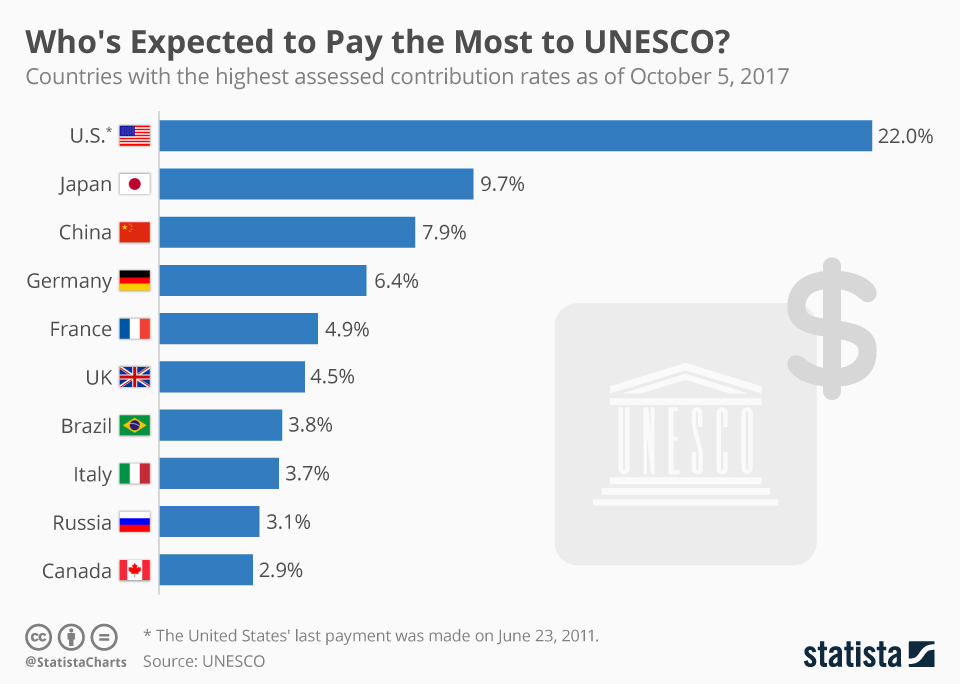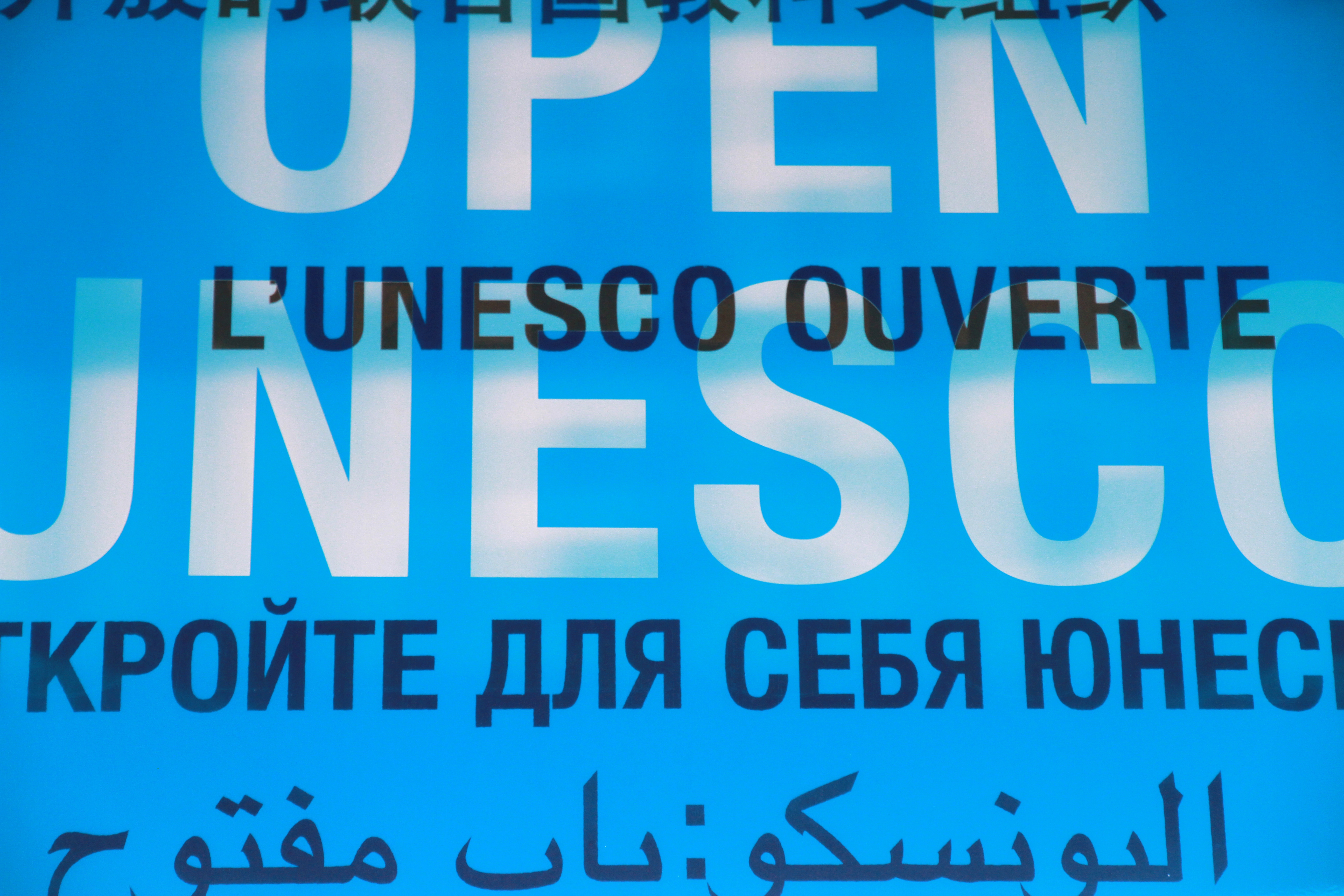The United States announced on October 12th 2017 that it will withdraw from UNESCO at the end of 2018, because of claims deeming the organization in need of “fundamental reform,” and accusations of an “anti-Israel bias.” UNESCO is the United Nations Educational, Scientific, and Cultural Organization. It is “responsible for coordinating international cooperation in education, science, culture and communication” globally. What does this decision really mean?
First, it is important to consider the actual power of UNESCO. The sovereignty of international organizations is a somewhat abstract concept, similarly to that of international law. Some claim that these organizations have no power to alter political decisions of sovereign countries. On the other hand, failing to acknowledge the policies that the United Nations is able to negotiate in many countries would be naive. The power of UNESCO stems from the powerful backing of the organization by the United States specifically.
Fundamentally, the nations which provide the most economic and military resources to the organization are also those which are internally the most influential. In the case of UNESCO, the United States is the organization’s largest economic contributor. It was also one of the founding signatory countries, and holds the largest military arsenal of the organization. These economic, political, and military assets grant the United States weight in terms of power, persuasion, and blackmail within UNESCO. The United States’ withdrawal is an active manifestation of a mismatch between its own political stance and that of the organization.

Source: https://www.statista.com/chart/11471/whos-expected-to-pay-the-most-to-unesco/
The United States’ recent clash with UNESCO is not the first occurrence of opposition between both actors. In October 2011, member countries voted to admit Palestine into the organization. The same day, the United States announced that it would end funding. Consequently, the last payment from the United States to UNESCO was on June 23rd, 2011. Representative Ileana Ros-Lehtinen, who chairs the House Foreign Affairs Committee, said that the “reckless action by UNESCO is anti-Israel and anti-peace,” and that she supported the stopping of aid, as mandated under U.S. law. Because the United States provided over 80 million dollars a year of funds to UNESCO, this action was clearly a “painful” cutoff.
The United States was one of the founding members of UNESCO, in 1945. Officially, the organization was founded to reconstruct the education and scientific institutions after the destruction caused by World War II. However, its founding coincided with the beginning of the Cold War; the education programs supported and funded by the organization were affected by the United States’ capitalist and democratic ideologies. Therefore, the organization was historically also built as a tool for ideological expansion. For this reason, any deviation from the United States’ political stance is considered unacceptable by the American government. Despite UNESCO’s official multilateral stance, it has always promoted American values under the guise of universalism, because the United States has always had the power assets to pressure the organization to support American interest by threatening to leave.
The United States has a precedent in withdrawing from the organization due to political misalignment with UNESCO. The country left UNESCO once before, in 1984, because of a growing disparity between American foreign policy and the organization’s goals. Gregory Newell, the American Assistant Secretary of State for International Organizations, explained that this action was taken because ”Unesco policies, for several years, have served anti-U.S. political ends.’ The “political ends” referred to “time and resources earmarked for projects that the United States (did) not believe should be dealt with by Unesco, such as spending $750,000 in discussing Soviet-inspired disarmament proposals” in the context of the Cold War. Then, in 2003, the United States rejoined UNESCO as President George W. Bush stated: “As a symbol of our commitment to human dignity, the United States will return to UNESCO. This organization has been reformed and America will participate fully in its mission to advance human rights and tolerance and learning.” The United States’ return to the organization coincided with the collapse of the Soviet Union and the end of the Cold War. This precedent is additional evidence that the United States has a long-standing unspoken policy of economically supporting solely organizations that align perfectly with its own ideals.
The only deviation from this American objective was Hillary Rodham Clinton’s visit to UNESCO in 2011. She was the first sitting Secretary of State to visit UNESCO, where she contributed to the launching of a partnership promoting education for women and girls. This event demonstrates Clinton’s support of UNESCO’s objectives, rather than UNESCO’s channeling of American objectives. It also suggests that under a Clinton administration, the withdrawal may have been avoided. Donald Trump’s presidency and his uncompromising foreign policy is the trigger that led to this dramatic step. Under a Clinton administration, the United States’ universalist approach over UNESCO policies would not have been avoided; however, rather than withdrawing from the organization altogether, a continuation of the refusal to submit payments would have been more likely. Clinton’s demonstration of partnership to UNESCO is evidence for a more lenient approach towards it.
John McArthur, a fellow in the Global Economy and Development program at the United Nations Foundation, claimed that the United States’ withdrawal from UNESCO “is pragmatic, not a grander political signal.” By leaving UNESCO, the United States will end the accumulation of unpaid dues and take a political stand against some of the organization’s so called “pro-Israel” policies. While these reasons may have contributed to the government’s decision, the history of the United States opposition with UNESCO, specifically the cutoff of American funds to the organization in 2011, clearly indicate a strong political bias for this action.
The American government administration has a history of expecting UNESCO to perfectly align its policies with American political, military and economic ideals, since the organization’s founding. In 1945, the organization was initially constructed with the goal of promoting liberalism, in contrast to Communism, during the Cold War. In addition, the United States funded the largest portion of the economic budget of UNESCO. The announcement of withdrawal, contingent to the United States’ permanent end to providing funding, is an active protest to the organization’s political stance which does not fully align with that of the United States.
